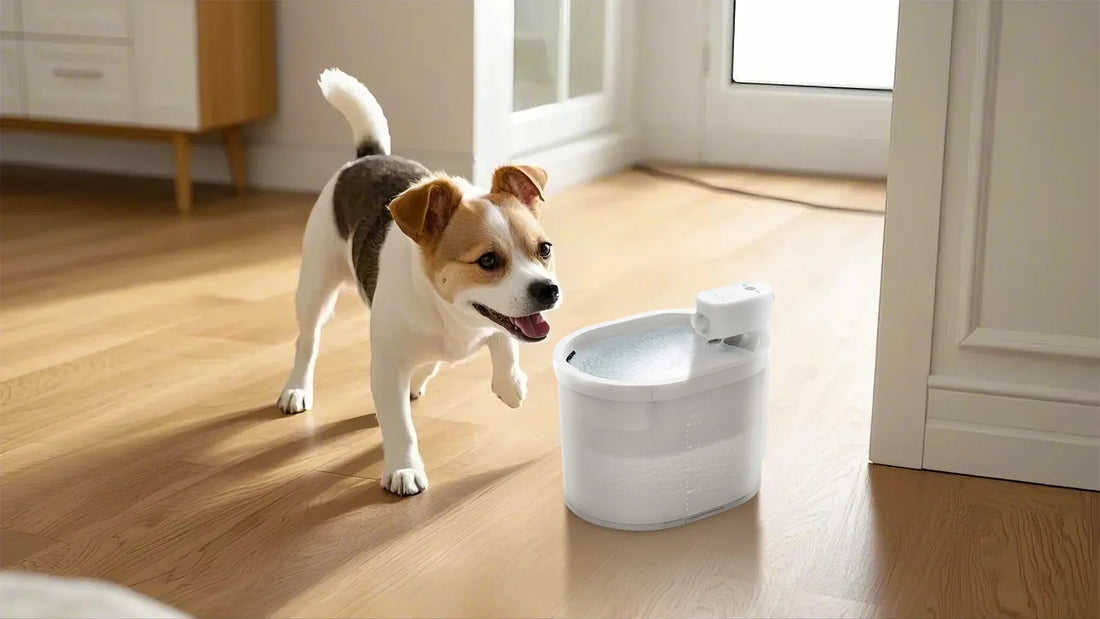Have you ever given your dog a bath, only to notice that they still smell? It can be frustrating and confusing, especially when you’ve used the best shampoos and followed all the right steps. But don’t worry, you’re not alone. Many dog owners face this issue, and there are several reasons why your dog might still have an odor even after a bath. Let’s dive into the possible causes and solutions to keep your pup smelling fresh.
Understanding the Basics of Dog Odor
Dogs have a natural scent that is part of their biology. This scent can be influenced by various factors, including their diet, health, and environment. While a bath can help reduce this odor, it doesn’t always eliminate it completely. Here are some common reasons why your dog might still smell after a bath:
Residual Moisture
One of the most common reasons for a lingering smell after a bath is residual moisture. If your dog’s fur isn’t dried thoroughly, it can create a damp environment that promotes the growth of bacteria and yeast. These microorganisms can produce unpleasant odors, making your dog smell worse than before the bath.
Ear Infections
Ear infections are another common cause of odor in dogs. If your dog has an ear infection, the smell can persist even after a bath. Ear infections are often accompanied by other symptoms, such as scratching, head shaking, and discharge. If you suspect an ear infection, it’s important to consult your veterinarian for proper treatment.
Skin Conditions
Skin conditions, such as dermatitis or fungal infections, can also cause your dog to smell after a bath. These conditions can lead to excessive oil production, flaking, and irritation, all of which can contribute to an unpleasant odor. Regular grooming and proper treatment can help manage these conditions and reduce the smell.
Anal Gland Issues
Anal glands are small sacs located on either side of your dog’s anus. These glands produce a strong-smelling fluid that is normally expressed during bowel movements. However, if the glands become impacted or infected, they can release this fluid, causing a foul odor. Regular expression of the anal glands by a professional groomer or veterinarian can help prevent this issue.
Diet and Digestive Health
Your dog’s diet can also play a significant role in their overall odor. Certain foods can cause bad breath, gas, and even skin odor. Additionally, digestive issues, such as food allergies or intolerances, can lead to an unpleasant smell. Ensuring your dog has a balanced diet and addressing any digestive problems can help reduce odor.
Effective Solutions to Keep Your Dog Smelling Fresh
Now that we’ve explored the possible reasons why your dog might still smell after a bath, let’s look at some effective solutions to keep your furry friend fresh and clean.
Thorough Drying
Ensuring your dog is thoroughly dried after a bath is crucial in preventing residual moisture. Use a high-quality towel or a pet-safe blow dryer to dry your dog’s fur completely. Pay special attention to areas where moisture can get trapped, such as under the ears, between the toes, and around the tail.
Regular Ear Cleaning
Regular ear cleaning can help prevent ear infections and reduce odor. Use a veterinarian-recommended ear cleaning solution and gently clean your dog’s ears once a week. Avoid using cotton swabs, as they can push debris further into the ear canal and cause damage.
Proper Grooming
Regular grooming is essential in maintaining your dog’s overall hygiene and reducing odor. Brush your dog’s fur daily to remove loose hair, dirt, and debris. Additionally, consider using a deodorizing spray or wipes between baths to keep your dog smelling fresh.
Healthy Diet
Providing your dog with a balanced and nutritious diet can help reduce odor from the inside out. Avoid feeding your dog table scraps or foods that are known to cause bad breath and gas. If you suspect your dog has a food allergy or intolerance, consult your veterinarian for a proper diagnosis and dietary recommendations.
Regular Veterinary Check-Ups
Regular veterinary check-ups are essential in maintaining your dog’s overall health and addressing any underlying issues that could be causing odor. Your veterinarian can perform a thorough examination, recommend appropriate treatments, and provide guidance on maintaining your dog’s hygiene.
Preventing Future Odor Issues
Preventing future odor issues involves a combination of proper grooming, a healthy diet, and regular veterinary care. Here are some additional tips to keep your dog smelling fresh:
Use the Right Shampoo
Choosing the right shampoo for your dog’s specific needs is crucial in reducing odor. Look for shampoos that are formulated to address your dog’s skin type and any specific issues, such as dryness or sensitivity. Avoid using human shampoos, as they can disrupt your dog’s natural pH balance and cause skin irritation.
Clean Your Dog’s Bedding
Your dog’s bedding can harbor dirt, bacteria, and odor-causing microorganisms. Regularly wash your dog’s bedding with a pet-safe detergent to keep it clean and fresh. Additionally, consider using a deodorizing spray or baking soda to neutralize any lingering odors.
Maintain Oral Hygiene
Oral hygiene is an often-overlooked aspect of reducing odor in dogs. Brush your dog’s teeth regularly with a veterinarian-recommended toothpaste and toothbrush. Additionally, provide dental chews or toys that help reduce plaque and tartar buildup.
Monitor Your Dog’s Environment
Your dog’s environment can also contribute to their overall odor. Keep your home clean and free of dirt, debris, and pet hair. Regularly vacuum carpets, wash floors, and clean furniture to reduce odor-causing bacteria and allergens.
By understanding the reasons behind why your dog might still smell after a bath and implementing these effective solutions, you can keep your furry friend fresh and clean. Remember, maintaining your dog’s hygiene is an ongoing process that requires regular care and attention. With the right approach, you can ensure your dog smells great and stays healthy for years to come.













